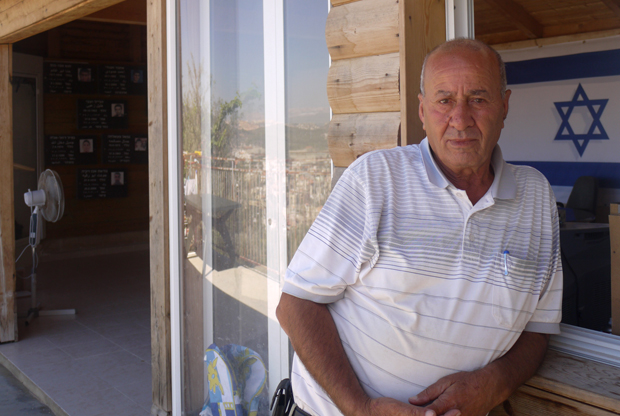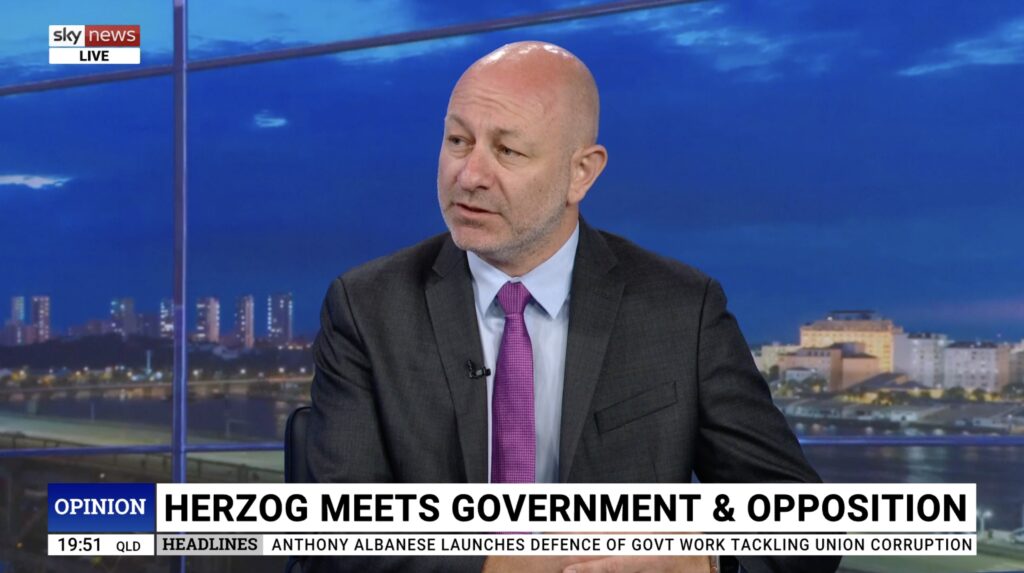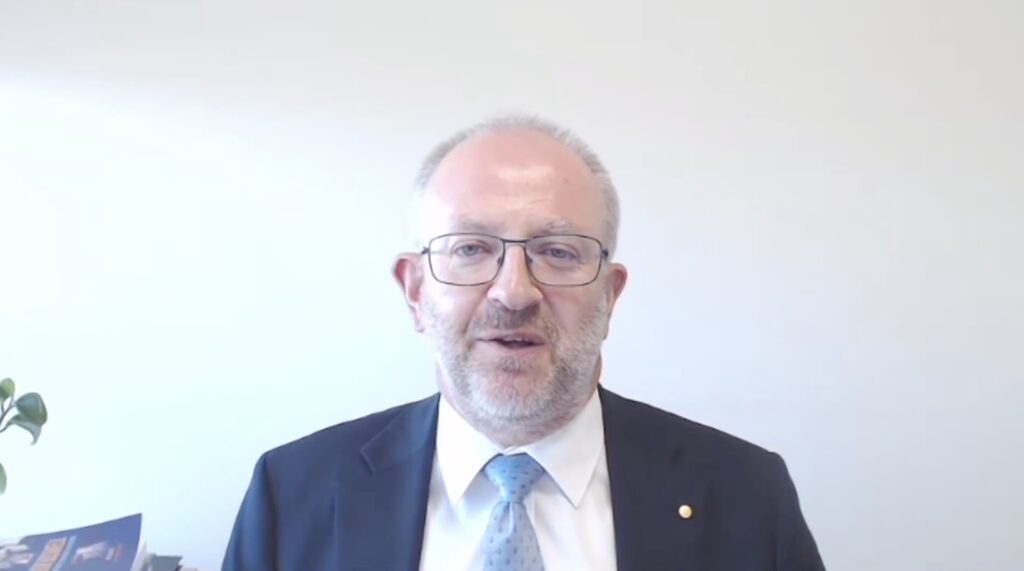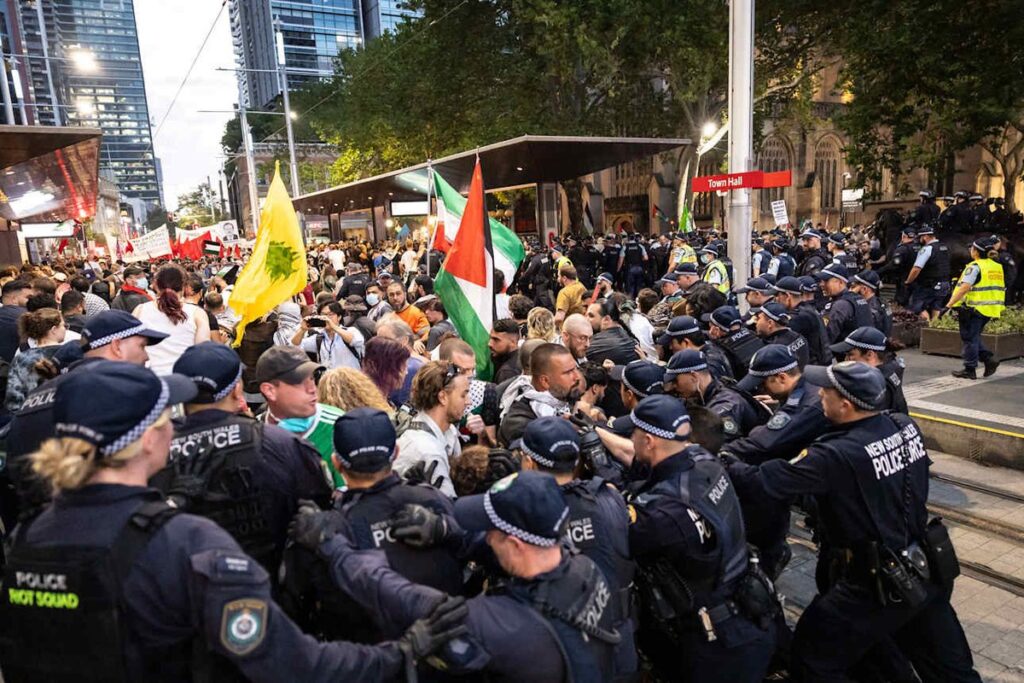UPDATES
Younger Israeli Arabs see engagement, not hostility, as path to equality
November 2, 2012 | Daniel Meyerowitz-Katz

Earlier this year, I was standing at the top of a ridge in the Wadi Ara Valley in Israel, overlooking the Arab settlement of Arara. I was with representatives from Givat Haviva, an Israeli-Arab reconciliation organisation. In the town below, I was told, lived a man who represented a new trend within Israel’s Arab citizenry.
On reaching 18, some form of national service is mandatory for non-ultra-Orthodox Jews in Israel, but Arabs are exempt from the requirement. As a rule, members of the Druze and Bedoin communities voluntarily serve in the Israeli Defence Forces, however the vast majority of Israel’s Arab population refuses even non-military national service.
The man in Arara, however, was breaking the mould. He had sent his three sons to serve in the military, and had unfortunately lost one in combat. While mourning the loss of his son, he had discovered that there was no memorial place in Israel specifically dedicated to the Arab soldiers who had fought and died for their country — so he determined to build one.
As I was told, the reaction of his community had been one of outrage. He had been harassed, vilified and shunned by his friends and family. What he had not been, however, was harmed physically. Likewise, his memorial still stands in Arara, unharmed. Whatever they may dislike about the rare sight of an Israeli flag in the middle of an Arab village, the people of Arara have shown it enough respect not to vandilise it or tear it down.
That man, Yousef Juhja, was recently profiled in Tablet by Oren Kessler. As Kessler noted,
Arab citizens of Israel have an equivocal, some would say almost schizophrenic relationship with the state, its symbols, and the majority Jewish population. Israel’s Arabs, some of whom identify as “Palestinians living in Israel” or even “1948 Arabs,” pepper their speech with Hebrew and balk at the prospect of marrying their West Bank brethren. But polls show 40 percent share the view-pervasive in the Arab world-that Holocaust history is fabricated.
A still greater proportion of Israeli Arabs see Zionism as imperialism, or worse, as a latter-day Crusade. Last year, an authoritative annual poll conducted by the University of Haifa’s Sammy Smooha found six in 10 Israeli Arabs said Israel has no right to exist as a Jewish state, and a similar proportion said Jews are a foreign imprint on the Middle East, destined to be replaced by Palestinians.
This year’s poll painted a slightly less grim picture: Six in 10 Israeli Arabs accept the country as a Jewish and democratic state, but an equivalent number described that situation as unfair. And while seven in 10 said the government treats them as second-class citizens, a similar proportion said they prefer to live in Israel over any other country.
As I have previously noted on this blog, the current Arab-Israeli leadership is extremely antagonistic towards the Israeli state. The Arabs who serve in the Knesset take a very hostile line, vehemently opposing any efforts to integrate the Arab citizens of Israel into Israeli society and sometimes even supporting terrorism against Israeli civilians.
While standing over Arara, I was being given a different picture of Israeli-Arab society. The Arab leadership, I was told, is entrenched not through popular support, but through cronyism. In Israeli-Arab communities, certain powerful families are in charge and very few question that fact.
The tide, however, is turning. A new generation of Israeli Arabs are emerging, better educated and better integrated than their forebears. It is true that Arab citizens suffer from discrimination in Israel, however there have been growing initiatives over the past decade to seriously address those problems in order to promote a more cohesive Israeli society. In the last few years, Arab towns have been added to Israel’s list of “priority” towns in need of social development; there have been outreach initiatives to encourage Arabs to do national service, and there is even a new campaign from the Knesset to encourage more Arabs to attend university.
In fact, as Sharyn Mittelman recently noted on this blog, Ron Gerlitz and Batya Kallus — two prominent activists for the rights of Arabs in Israel — have defended these policies and, while noting that there is much left to do, condemned those who claim that there has been no progress:
It is abundantly clear that the increases in the allocation of government resources are insufficient, and are not closing the deep existing gaps. The path is still long. However, for the past several years, we have been intensively analyzing government policies toward Arab citizens and their struggle for equality. On the basis of empirical research and our in-depth acquaintance with the bureaucracy and government policies, we write – taking full responsibility for this statement – that this is not just a matter of forward movement in individual cases or only declarative statements. Rather, it indicates intent to advance policies that aim to close the gaps in the allocation of resources between Arabs citizens and Jews, and this intention has been agreed upon and implemented by significant components of the government’s bureaucracy at the most senior levels.
… the bottom line is that the government of Israel through its professional staff in government ministries is closing the gaps in many fields. Yet, there are many voices in Arab society who deny this trend, claiming that there is an overall decline in every field and that the advances are marginal at best.
Arab youth, who absorb the message that the totality of the government of Israel in relation to Arab society is aimed at harming Arab citizens, will not make an effort to apply for positions in government service or in high tech companies; and a professional working in Arab local government, who accepts these claims will not find the strength to struggle for government budgets. Claiming that this negative trend also exists in the fields of economic development and the allocation of government resources is not only incorrect, it causes despair. And this is, perhaps, the greatest enemy of Arab society in Israel. This is a dangerous claim which weakens Arab society and binds the hands of those who are trying to do the work-in government ministries and in civil society activism and thus harms the struggle for equality.
The success of these initiatives is manifesting itself not just through statistics, but through a tangible change in Arab-Israeli society. More and more voices are emerging from Israel’s Arab community, echoing the call of Gerlitz and Kallus for them to stop rejecting the state and helping to perpetuate their own misery, but to embrace the country in which they live and fight for equality in Israeli society.
In fact, one Israeli Arab, Aatef Karinaoui, has decided to address the disparity between this emerging body of Arab citizens and their political leadership by forming a new political party called El Amal Lat’gir (‘Hope for Change’) and running for Knesset himself. As he explains:
All the bad things [the current Arab leaders] say about Israel and its supposed ill-treatment of Arabs is a lie, a bald-faced lie. Arab members of Knesset are setting a fire. They feed off of the politics of division and don’t represent the Arab public. The Arab Knesset members do nothing to educate them or advance their situation… But [at present] there is no alternative to the current leadership. … “We don’t need the Arab members of Knesset to obsess over marginal matters and foreign affairs as they’ve been doing. We have real, pressing concerns — 15 people living in a single house, land issues, education problems. We have plenty to deal with. But [Arab MKs] distance us from the mainstream and don’t want progress. Their leadership is the real failure.
For Juhja, while he recognises the discrimination that he faces, he also sees the solution as democratic participation and societal engagement, not fighting against Israel’s existence.
[A cousin of Juhja’s said that:] “I’m proud that I’m an Israeli citizen and that I live in the state of Israel, but I feel constant discrimination. There are huge gaps between the Jewish and Arab communities on every level.”
“I go to Tel Aviv and hear ‘Death to the Arabs.’ Then I go into the [Palestinian] territories, and I’m treated as if I’m half a Jew,” he says. “If peace comes in another 10 or 15 years, and if I’m given my rights and made to feel like I belong, I’ll be the first to send my sons to enlist.”
Juhja, undeterred, dresses down his younger relative.“You are a minority. Every minority in the world suffers to a certain extent-some more, others less. But you have to express your frustration in an organized, democratic way,” he says. “For the past year and a half, young people in Tel Aviv have protested over the lack of housing. If you want to protest discrimination, do so within the framework of the law.”
Lighting another smoke, Juhja turns to me and cuts to the heart of the matter. “I’m not a citizen of Jordan, Lebanon, Turkey, or even the Palestinian Authority,” he says. “I’m a Muslim-Arab Israeli. I received Israeli citizenship the moment I was born.”
Daniel Meyerowitz-Katz
Tags: Israel





